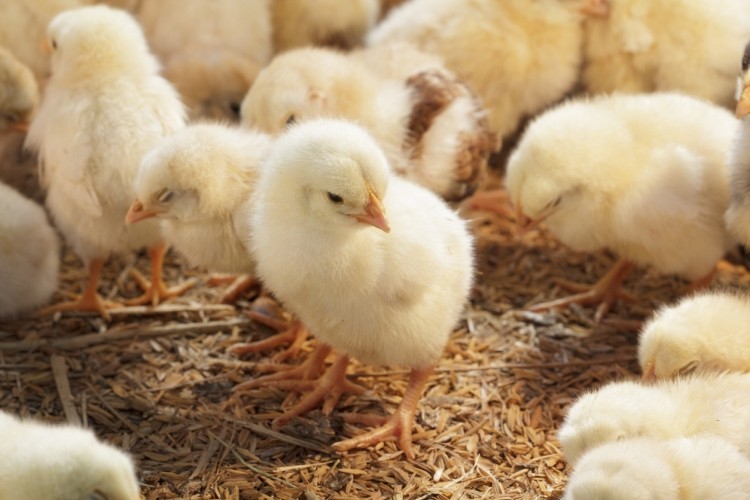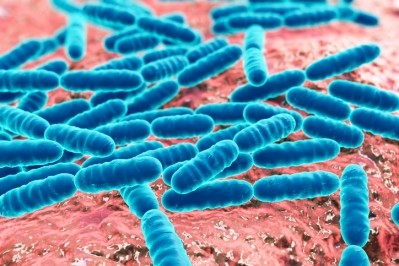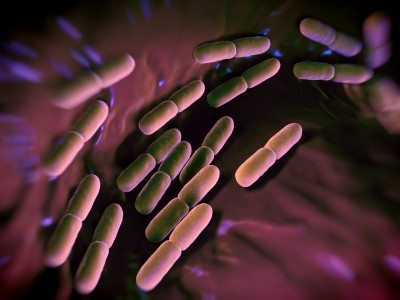Regionally relevant probiotic may boost growth, weight gain in broilers

A team of researchers from the National University of the Litoral and National Institute of Agricultural Technology in Argentina examined the use of a probiotic strain on growth performance and intestinal microbiota in chickens. The group published its findings in the journal Research in Veterinary Science.
“The purpose of the present research was to determine the impact of administering lyophilized Lactobacillus salivarius DSPV 001P in promoting growth performance and intestinal microbiota balance in broilers reared under low ambient temperature,” said the researchers.
The researchers found that the probiotic strain examined was non-pathogenic and offered a benefit to the broilers, they said. “Dietary inclusion of L. salivarius DSPV 001P displayed a positive effect in reducing mortality, and in promoting BWG [body weight gain] compared with C-G [control group],” they added.
“This strain has in vivo probiotic properties, thus making it a promising alternative to promote broilers' health,” the researchers said. “As the probiotic candidate will likely exert a more profound positive effect when there is a disturbed intestinal microbiota, future in vivo studies involving a challenge with pathogens should be conducted.”
Why use regionally-found probiotics?
There has been an increased interest in limiting use of antibiotics in poultry and livestock production, said the researchers. However, alternative approaches have been developed to replace the reliance on sub-therapeutic antibiotics.
The addition of probiotics, or live microbial feed supplements, can be used to improve intestinal microbial balance and have a positive influence on the animal, they said. They also have been tied to improvements in host immunity.
Each probiotic assessed needs to meet several requirements including function, offering benefit and safety, they said. In poultry, the focus has been on probiotic strains often from lactic acid bacteria, so much work has been done with Lactobacillus.
However, results have been contradictory, the researchers said. Variations in effectiveness may be tied to the use of different bacterial strains.
To find the most beneficial probiotic microorganisms it may be important to use strains isolated from the same ecosystem where they will be used, said the researchers. “Gut inhabitants that share long evolutionary histories with their host species are likely to possess adaptive health attributes: these can be explored when those organisms are used as probiotics,” they added.
Additionally, it can be challenging for microorganisms introduced to the gut to find access, they said. When strains that are allochthonous fail to produce results, it may be because they were unable to compete in the intestinal ecosystem.
The poultry industry in Argentina is a dynamic and expanding sector, they said. But all probiotics are imported.
The researchers aimed to develop and test the use of native probiotic cultures, they said. Previously, a strain of Lactobacillus taken from the jejunum of a broiler was evaluated for its apparent probiotic properties in an in vitro environment and ability to integrate and survive in the gastrointestinal tract (GIT) of broilers.
Methods and materials
In the study, 240 chicks were offered one of two diets for a period of 42 days, said the researchers.
The diets included a group receiving a corn-sorghum basal diet without antibiotics or anti-coccidials, and that diet supplemented with a lyophilized probiotic bacteria, they said. The temperature in the facility was maintained at 18-22 Celsius for the first three weeks and then lowered to a range of 8-12 Celsius.
A selection of birds was collected at the start and during each week of the trial for analysis, they said. The crop and caecum were harvested to establish GIT colonization by inoculated bacteria and liver samples were collected.
Yeasts, total lactic acid bacteria (LAB), E. coli and enterobacteria were recorded, said the researchers. Bird weight was noted initially, and it and feed intake were checked weekly, to establish body weight gain and the feed conversion ratio. Mortality also was recorded.
Results
There was a reaction found to the inclusion of the supplemental probiotic in the poultry feed, said the researchers. Broilers receiving the supplemented diet had improved body weight when compared to the control group.
“Although there were no significant differences, dietary inclusion of L. salivarius tended to increase feed intake and to reduce feed conversion ratio during the six-week experimental period,” they said. The feed additive also tended to reduce mortality, they added.
However, no differences were found for the concentration of Enterobacteriaceae or E. coli in the intestinal tract, they said. And there were no changes noted for lactic acid bacteria in the crop or caecum.
“It appears that L. salivarius DSPV 001P was non-pathogenic, safe and beneficial to broilers, which implies that it could be a promising feed additive, thus enhancing the growth performance of broilers and improving their health,” they said.
Source: Research in Veterinary Science
Title: Impact of lyophilized Lactobacillus salivarius DSPV 001P administration on growth performance, microbial translocation, and gastrointestinal microbiota of broilers reared under low ambient temperature
DOI: doi.org/10.1016/j.rvsc.2017.07.011
Authors: J. Blajman, C. Olivero, M. Fusari, J. Zimmermann, E. Rossler, A. Berisvil, A. Scharpen, D. Astesana, L. Soto, M. Signorini, M. Zbrun, L. Frizzo














